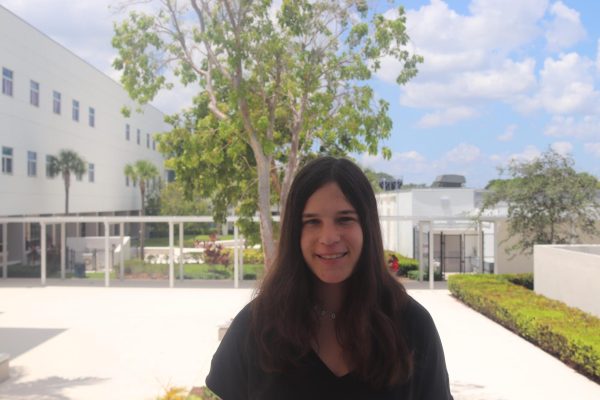Amidst the Pine Rockland ecosystem next to Zoo Miami, live endangered Florida Bonneted Bats, Miami Tiger Beetles and many other species. Currently, debates arise as developers seek to build the Miami Wilds Water Park.
The Miami Wilds Project is the planned development of a waterpark, hotel, shops and restaurants on 27.5 acres of county-owned land next to the zoo’s protected pine rockland ecosystem.
Many environmental activists are calling for action, claiming this area is a critical habitat for these endangered species.
“It has to do specifically with a species of bats that are endemic here. And their largest population that still exists, according to the scientists who are doing research, is actually located in this area where they’re trying to build a waterpark,” Marine Science Honors teacher Nicholas Quintairos said. “So, if we’re serious about conserving biodiversity and continuing to promote areas that are high in biodiversity, then we need to protect those areas that already have this biodiversity and can continue to expand biodiversity here in South Florida.”
From a local perspective, Quintairos believes the waterpark is unnecessary to the area and preserving the pine rockland is more important.
“Do we really need or want a waterpark? We’re surrounded by water on three sides. We have the ocean, we have all of this beautiful environment to enjoy and we’re going to create an artificial waterpark while destroying our own environment, it’s kind of counterintuitive. And then the other side of it is looking at it from their perspective, what they want to achieve through this water park. And in order to get the public’s support, you need to choose a site that is not really going to destroy South Florida, especially ecologically,” Quintairos said.
On Nov. 4, a rally was held outside of Zoo Miami to oppose the construction of the water park. The rally was led by a coalition of groups including environmental activist Zac Cosner, who was one of the main people organizing the rally.
“Having the infrastructure there already for this stage, the various tents for education stations for people to make signs and educate them themselves about pine rocklands while they wait for, you know, the full 400 people that ended arriving definitely made it a lot easier to organize and plan,” Cosner said.
This controversy dates back to 2006 when voters in Miami-Dade County endorsed a for-profit entertainment center outside the zoo, only on land that is not “environmentally sensitive.”
“The building of the waterpark began in 2006, with, with a voter referendum to develop the waterpark which, predated our understanding of the importance of that property for the endangered species, and also predated the destruction of large parts of that property, so the referendum was approved in 2007, or 17 years ago in 2006. And at the time voters said, ‘Oh, yeah, sure,’ why not put a waterpark there? But now, so much of that forest has been lost. And we understand that that parking lot is not just a parking lot anymore. It’s an important feeding ground for several endangered species, most notably, the Florida Bonneted Bat. And so, you know, now it is time that we have information to reconsider. And you finally end this 17 years of peril that this forest and this habitat has been under,” Cosner said.
In 2020, developers gained approval and planned to begin building the parking area outside of the Miami Zoo. Almost immediately, several environmental groups sued, seeking to block the deal because federal wildlife officials failed to complete environmental studies before lifting restrictions to allow for the water park.
The final vote is set to occur on Dec. 12 — aiming to revise the lease first approved in 2020 as the original agreement contains construction deadlines that are no longer attainable due to ongoing legal challenges.










